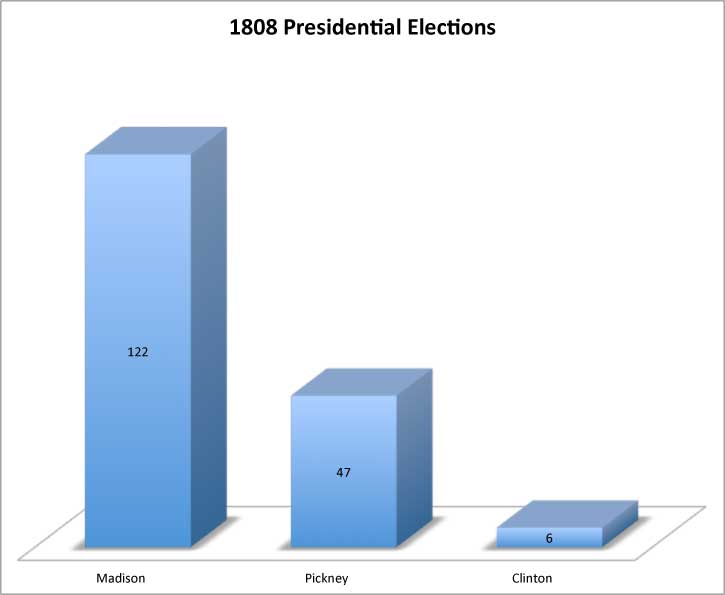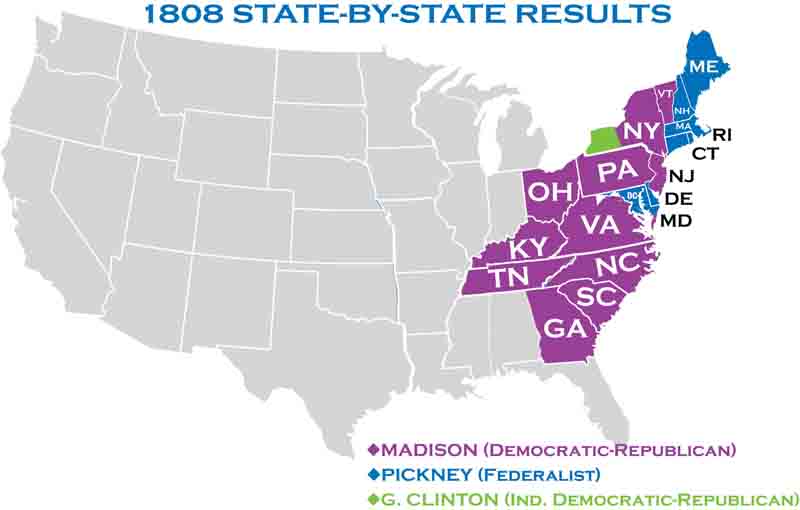1808 Election Results Madison vS Pickney

Thomas Jefferson followed the precedent Washington set. Jefferson felt that two terms in office were enough for any President to serve. Jefferson's second term had not been as successful as his first. The war between England and France, and the failure of both countries to observe American neutrality resulted in the passage of the Embargo Act. The Embargo Act was very unpopular among the shippers of New England, as well as farmers who exported their crops. It also failed to have any effect on England or France. The Federalist hoped to exploit that unhappiness to unseat the Republicans. Jefferson's hand-picked successor was his long-term friend, and Secretary of State, James Madison. Madison was the unanimous selection of the Republican party. The Federalists ran Charles Pinckney as their candidate once again. The campaign was very spirited, with the Federalists bitterly attacking Madison for the Embargo Act. However, when the electors were selected, it was clear the opposition to the Embargo Act was not as widespread as the Federalists had hoped. Madison easily defeated Pinckney, garnering almost three times as many electoral votes as received by Pinckney.

State results in 1808
 >
>